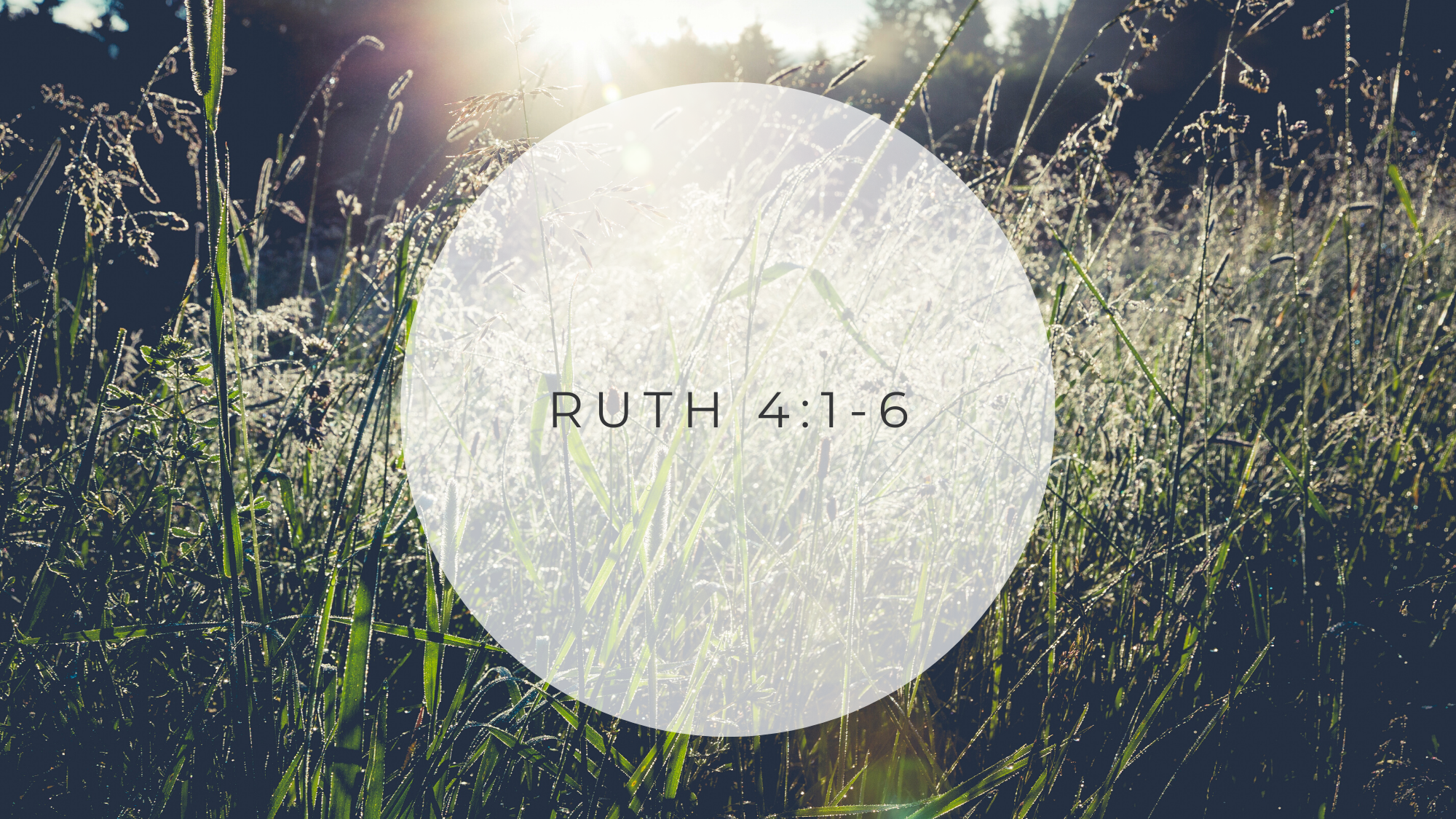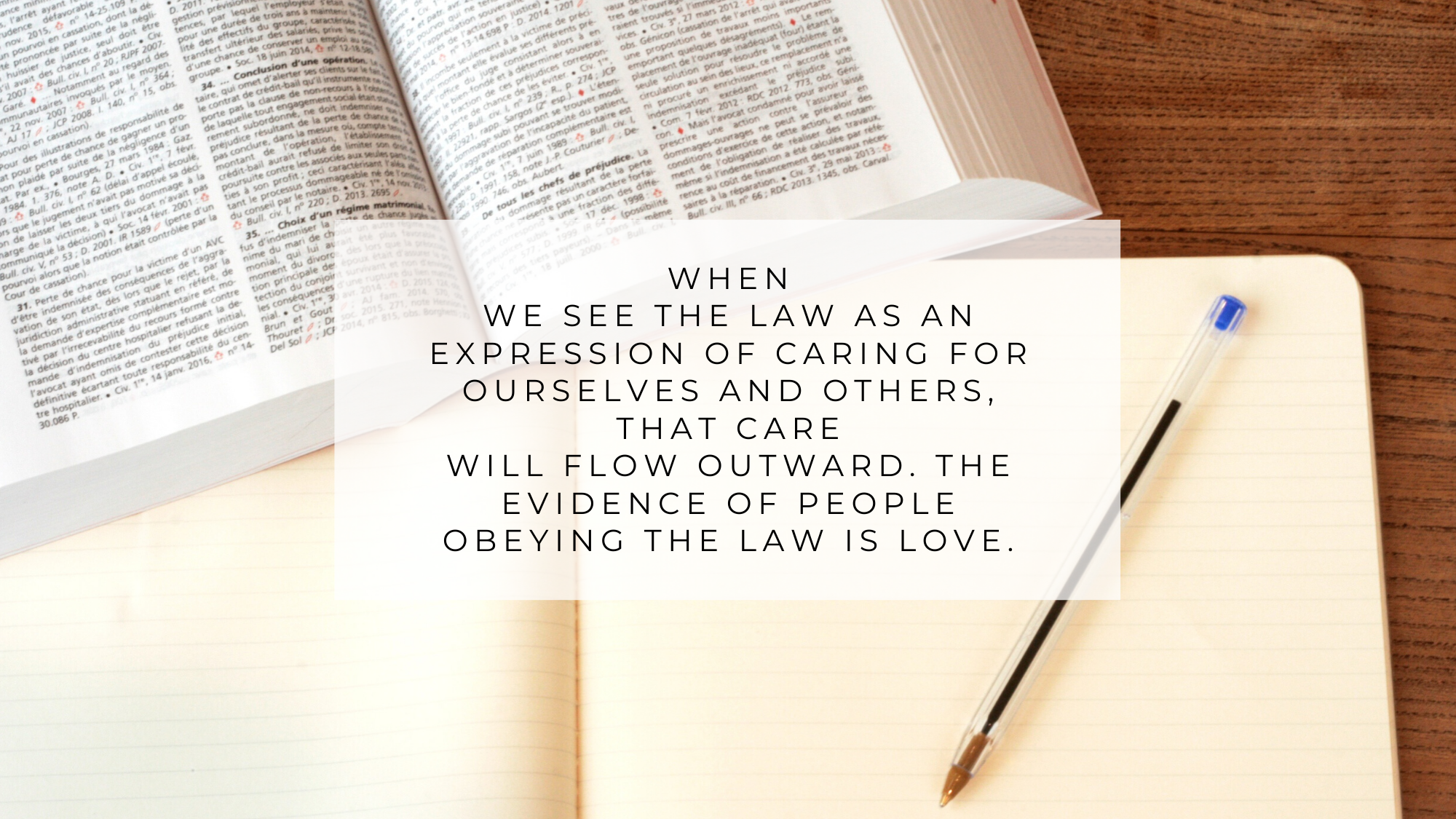Day 20: Family Rules, Law & Love (Ruth 4:1-6)
Today’s Passage: Ruth 4:1-6
Did your family ever have “rules”? You know, either explicit or implicit norms of behavior? Mine did.
They ranged from having my shirt tucked-in, to going to church on Sunday, to opening the door for others. I was expected to behave that way, regardless of my age or location, and regardless of what others around me were doing.
Two observations about family-rules. From the outside, they seemed unnecessary or even worse. From the inside, they made perfect sense. They helped guide our families.
Today, Boaz is following the family-rules, the Law.
He is a smart negotiator. He is not doing anything illegal, simply being wise in order to win the woman he loves. If you don’t think he loves Ruth, it becomes explicit in the next bit of Scripture we will read together. Take my word for it, he loves her.
His love, interestingly enough, began with her showing up to glean. What we’ve read so far has revealed he, and much of the town, had taken notice of Ruth’s commitment to Naomi. Beyond being curious about her, hesed guided all his actions.
Consider in the last chapter, after he committed to settling the matter of who would be her redeemer, he had her stay the night. It would have been safer for him to send Ruth on her way. However, it would have been unsafe for her to travel home alone in the middle of the night. Then, in the morning, to protect her (and his) reputation he sent her home with barley.
What started as a story of despair, has become a love story. It has at its roots God’s Law. The Law instructs that a Kinsman-Redeemer act. Boaz in verse 3:12 acknowledges he is one of Naomi’s redeemers. Yet Boaz actions far exceed what the Law requires.
People often perceive the Law of God and the Love of God as two polar opposites. I’ve many times heard the Old Testament is about Law, and the New Testament about Love—as if they are separate and unrelated. On Day 15, I commented on this relationship.
Today, we read a real-time episode of Law & Love simultaneously on display.
Consider, within the terms of kinsman-redeemer laws found in the Pentateuch, no action on Boaz’s part is necessary. From a purely legalistic point of view, Boaz is under no legal obligation to act at all.
Yet the Law has planted in his heart this idea of redemption. He is intent on Naomi and Ruth being redeemed. He certainly would like to be that Redeemer, but he will follow the Law, and so he goes to the city gate.
We read in this scene how following the Law, and offering Love has a cost. The other Kinsman-Redeemer notes the personal sacrifice. Consider, buying the land requires he spend money. When he buys it and fulfills his obligation of making a baby, the baby will grow, and the land will be the child’s. A Redeemer does not expand his estate, in the end, he reduces it.
Boaz is successful in his endeavor to become the Kinsman-Redeemer. This story of fulfilling the Law has become a story of love.
How? Because the Law was used to guide the actions of people within a family, a covenantal family. Fulfilling the Law in a vacuum results in a society of legalism, complete with its own vacuum of caring. When we see the Law as an expression of caring for ourselves and others, that care will flow outward. The evidence of people obeying the Law is love.

